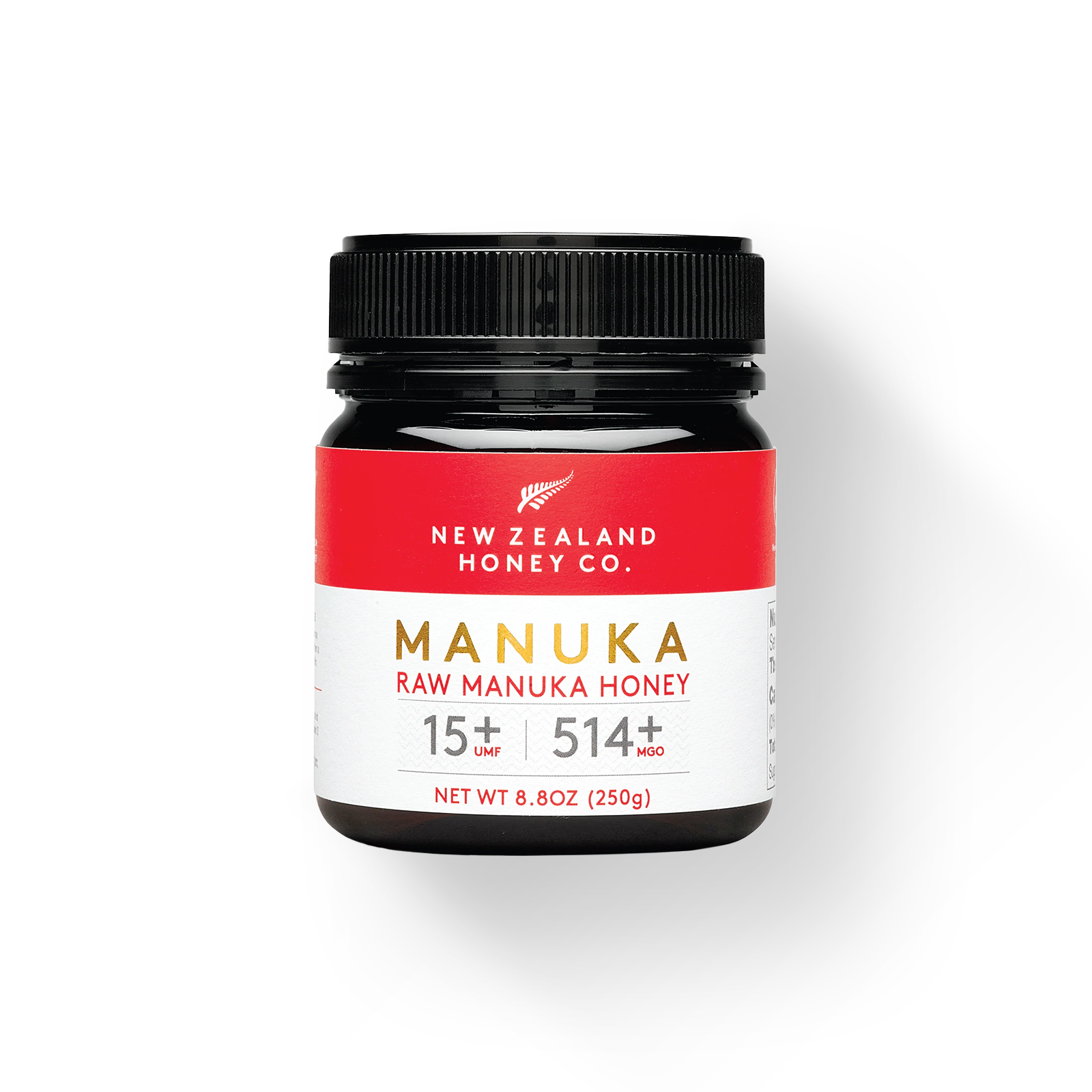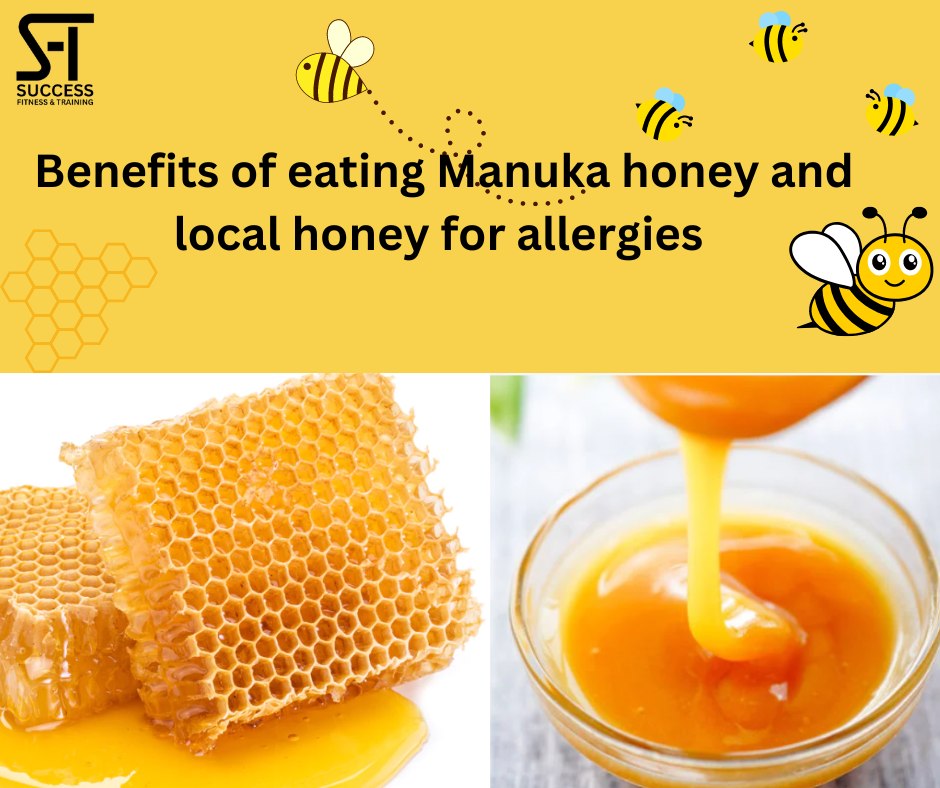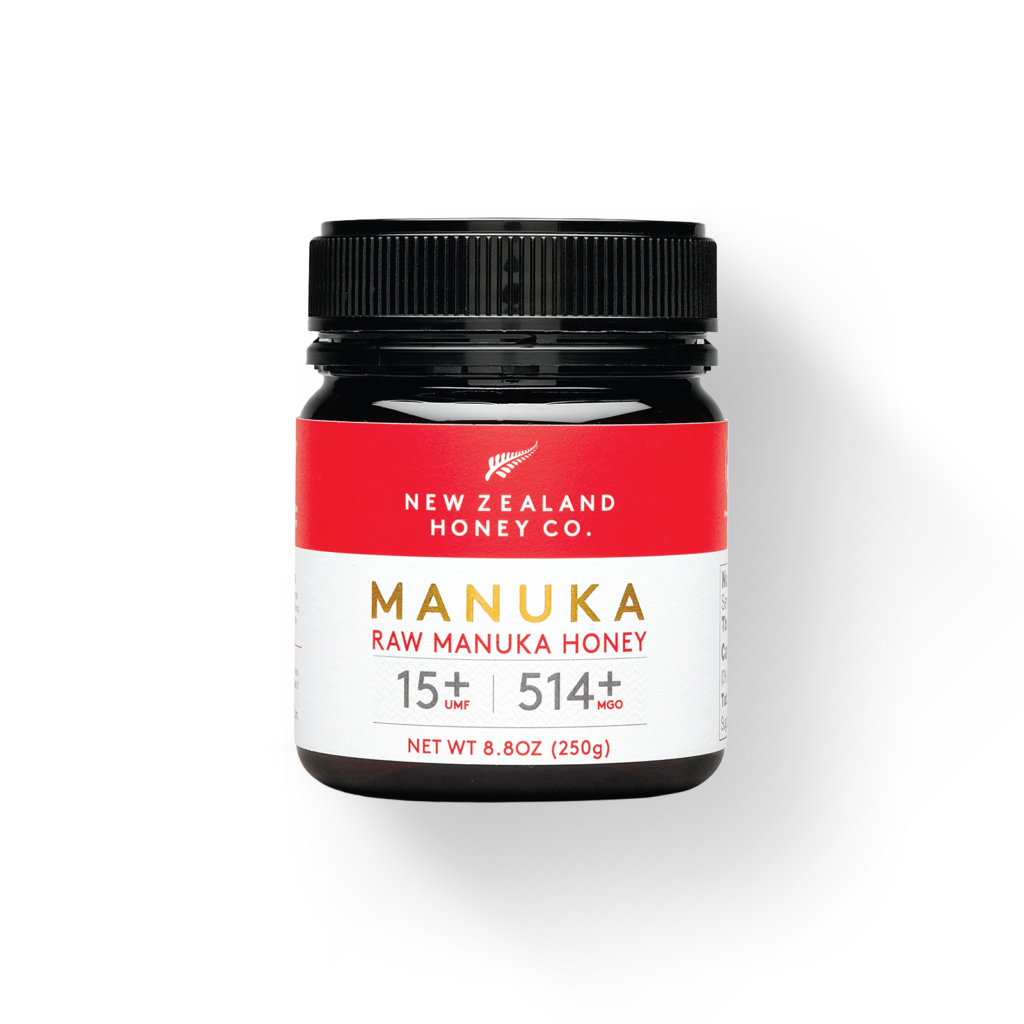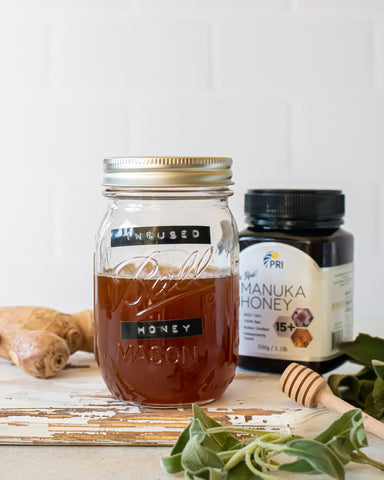
Have you ever wondered if there is a natural remedy that could help alleviate your allergies? Well, look no further than manuka honey. This golden elixir derived from the nectar of the manuka tree in New Zealand has gained a reputation for its numerous health benefits. Among them, its potential to combat allergies has been a topic of interest. But is manuka honey really effective in soothing those irritating symptoms? In this article, we will explore the potential benefits of manuka honey for allergies and delve into the scientific research behind it. Whether you are a hay fever sufferer or just curious about the powers of nature, read on to find out if manuka honey is the answer you’ve been searching for.
What is Manuka Honey?
Manuka honey is a type of honey that is produced in New Zealand and Australia. It is made by bees that gather nectar from the Manuka bush, which is native to these regions. This unique honey has gained popularity for its potential health benefits, including its use as a natural remedy for allergies.
Definition
Manuka honey is a type of honey that is characterized by its dark color, distinct flavor, and thick texture. It is known for its rich and complex taste, which has hints of caramel and a slightly bitter undertone. What sets manuka honey apart from other types of honey is its high concentration of bioactive compounds, particularly methylglyoxal (MGO), which is believed to be responsible for many of its health benefits.
Origin
Manuka honey is produced by bees that pollinate the Manuka bush, also known as Leptospermum scoparium. This flowering plant is native to New Zealand and Australia, and it blooms for a brief period each year. During this time, bees collect the nectar from the Manuka flowers and transform it into honey. The unique environmental conditions and the presence of specific compounds in the Manuka bush contribute to the distinct properties of manuka honey.
The Allergic Response
Understanding Allergies
Allergies occur when the immune system overreacts to substances that are usually harmless, such as pollen, dust mites, or pet dander. When a person with allergies comes into contact with these allergens, their immune system produces antibodies that trigger the release of histamine and other chemicals. This immune response can cause a variety of symptoms, ranging from sneezing and itching to more severe reactions like difficulty breathing.
Symptoms of Allergies
Allergies can manifest in various ways, depending on the individual and the specific allergen. Common symptoms include sneezing, runny or stuffy nose, itchy eyes, coughing, wheezing, and skin rashes. These symptoms can range from mild to severe and can significantly impact a person’s quality of life. Identifying the allergy triggers and finding appropriate ways to manage the symptoms is essential for allergy sufferers.
Causes of Allergies
There are numerous allergens that can trigger allergic reactions in susceptible individuals. Some of the most common allergens include pollen from trees, grasses, and weeds, dust mites, pet dander, mold spores, and certain foods or medications. Allergies can be inherited, and individuals with a family history of allergies are more likely to develop allergic reactions themselves. Environmental factors, such as air pollution and exposure to certain chemicals, can also contribute to the development of allergies.

Potential Benefits of Manuka Honey for Allergies
Antibacterial Properties
One of the key benefits of manuka honey is its strong antibacterial properties. It has been used for centuries as a natural remedy for wound healing and preventing infections. The high concentration of MGO in manuka honey is believed to be responsible for these antibacterial effects. While allergies are not caused by bacteria, the antibacterial properties of manuka honey may help in reducing the risk of secondary infections that can occur when allergy symptoms, such as itching or rubbing the affected areas, cause skin damage.
Anti-Inflammatory Effects
Allergic reactions often involve inflammation in various parts of the body, such as the nasal passages, eyes, and skin. Manuka honey has been found to possess anti-inflammatory properties, which may help in reducing the inflammation associated with allergies. The bioactive compounds in manuka honey, including MGO and flavonoids, have been shown to inhibit certain inflammatory pathways in the body, thereby alleviating allergy symptoms.
Immune System Support
Another potential benefit of manuka honey for allergies is its ability to support the immune system. The immune system plays a crucial role in the development and management of allergic reactions. By supporting and modulating the immune response, manuka honey may help in reducing the severity and frequency of allergic symptoms. It is important to note that more research is needed to fully understand the impact of manuka honey on the immune system and its specific effects on allergies.
Scientific Studies on Manuka Honey and Allergies
Study 1: Effects on Pollen Allergies
In a study published in the International Journal of Environmental Research and Public Health, researchers investigated the effects of manuka honey on pollen allergies. The study involved individuals with seasonal allergic rhinitis, commonly known as hay fever. Participants were given a daily dose of manuka honey for several weeks during the pollen season. The researchers found that the participants who took manuka honey experienced a significant reduction in their allergic symptoms compared to those who took a placebo.
Study 2: Allergic Rhinitis Relief
Another study published in the Journal of Apicultural Research focused on the effects of manuka honey on allergic rhinitis, which is characterized by inflammation and irritation of the nasal passages. The researchers found that participants who used manuka honey nasal spray experienced a reduction in nasal congestion, sneezing, and runny nose compared to those who used a placebo nasal spray. The researchers concluded that manuka honey may be a promising complementary therapy for allergic rhinitis.
Study 3: Asthma Symptoms Improvement
A study published in the Asian Pacific Journal of Allergy and Immunology investigated the effects of manuka honey on asthma symptoms. The study involved individuals with mild to moderate asthma who consumed manuka honey daily for eight weeks. The participants reported a significant improvement in their asthma symptoms, including reduced wheezing, coughing, and shortness of breath. The researchers suggested that this improvement may be due to the anti-inflammatory properties of manuka honey.

Using Manuka Honey for Allergies
Choosing the Right Manuka Honey
When using manuka honey for allergies, it is important to choose a high-quality product that is authentic and certified. Look for manuka honey that has a Unique Manuka Factor (UMF) rating, which indicates the potency and quality of the honey. The UMF rating system ensures that the honey contains the beneficial compounds needed to provide potential health benefits. It is also advisable to purchase manuka honey from reputable brands or sources.
Consumption Methods
Manuka honey can be consumed in various ways to potentially alleviate allergy symptoms. It can be taken orally by consuming a spoonful of honey directly or by adding it to warm water, herbal tea, or smoothies. Manuka honey can also be used as a natural sweetener in recipes or spread on toast. In some cases, manuka honey nasal sprays or eye drops may be recommended for relieving allergy symptoms specifically affecting the respiratory system or eyes.
Dosage Recommendations
There is no established standard dosage for using manuka honey for allergies. The appropriate dosage may vary depending on several factors, including the severity of allergy symptoms, individual tolerance, and the specific product being used. It is recommended to start with a small amount and gradually increase the dosage while monitoring the response of your body. If you have any concerns or questions regarding the dosage, consult with a healthcare professional or a licensed naturopathic doctor.
Potential Side Effects and Precautions
Allergic Reactions
While manuka honey is generally well-tolerated, there have been rare cases of allergic reactions reported. Individuals with a known allergy to honey should exercise caution when using manuka honey. It is also advised to perform a patch test before using manuka honey topically to check for any allergic reactions or skin sensitivity. Discontinue use if you experience any adverse reactions and seek medical attention if necessary.
Interactions with Medications
Like any other natural remedy, manuka honey may interact with certain medications. It is important to consult with a healthcare professional if you are taking any medications, especially if you have any pre-existing medical conditions. Manuka honey may interact with blood-thinning medications, diabetic medications, or medications that affect the liver or kidneys. Your healthcare provider can provide guidance on the safe use of manuka honey in conjunction with your current medications.
Not Suitable for Infants
Manuka honey should not be given to infants under the age of one year. This is because infants have an immature digestive system that may not be able to handle the potential bacterial contaminants that can be present in honey, including Clostridium botulinum spores. These spores can cause infant botulism, a rare but serious illness. It is best to wait until the child reaches their first birthday before introducing honey, including manuka honey, into their diet.

Other Natural Remedies for Allergies
Local Raw Honey
Local raw honey, similar to manuka honey, may also provide some relief for allergies. The theory behind this remedy is that local honey contains trace amounts of local pollen, which can help desensitize the immune system to the allergens present in the area. However, scientific studies on the effectiveness of local honey for allergies are limited, and it may not be as potent as manuka honey due to differences in their composition.
Quercetin Supplements
Quercetin is a naturally occurring flavonoid that has been studied for its potential benefits in reducing allergic symptoms. It is found in various foods, such as apples, onions, and berries, but can also be taken in supplement form. Quercetin is believed to have anti-inflammatory and antihistamine properties, which may help in alleviating allergy symptoms. It is advisable to consult with a healthcare professional before starting any new supplement regimen.
Nettle Leaf Tea
Nettle leaf tea is another natural remedy that has been used to ease allergy symptoms, particularly those related to seasonal allergies. Nettle leaf contains various compounds that possess anti-inflammatory and antihistamine effects. While more research is needed to fully understand its effectiveness, some individuals find relief by drinking nettle leaf tea during allergy seasons. However, pregnant women and individuals with certain medical conditions should exercise caution and consult with a healthcare professional before consuming nettle leaf tea.
Importance of Consulting a Medical Professional
Seeking Expert Advice
While manuka honey and other natural remedies may offer potential benefits, it is important to seek expert advice, especially if you have severe or persistent allergy symptoms. A healthcare professional, such as an allergist or a naturopathic doctor, can help assess your allergies, provide personalized recommendations, and ensure that the use of manuka honey or other remedies is safe and appropriate for your specific situation.
Possible Risks
Although manuka honey is generally considered safe for most individuals, there may be certain risks or contraindications that apply to specific individuals. People with diabetes should be cautious when using manuka honey due to its natural sugar content. Additionally, individuals with known allergies to bee stings or pollen should exercise caution when using any honey-based products, including manuka honey. It is always best to consult with a healthcare professional to evaluate potential risks and benefits before incorporating manuka honey into your allergy management regimen.
Individual Variations
It is important to recognize that individual responses to natural remedies, including manuka honey, can vary. What works for one person may not work for another, and some individuals may experience different or no effects at all. It is crucial to listen to your body, pay attention to any changes or reactions, and adjust your approach accordingly. Keep in mind that natural remedies should complement, not replace, any prescribed medications or treatments for allergies.

Conclusion
In conclusion, manuka honey shows promise as a potential natural remedy for allergies. Its antibacterial properties, anti-inflammatory effects, and potential immune system support make it an intriguing option for individuals looking for alternative ways to manage their allergy symptoms. However, more research is needed to fully understand the extent of its benefits and its specific effects on different types of allergies. If you are considering using manuka honey for allergies, it is advisable to consult with a healthcare professional to ensure its safe and appropriate use in your individual case.